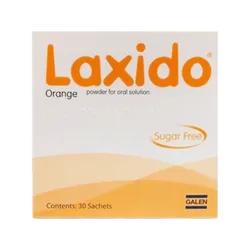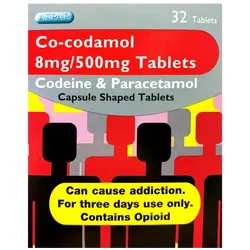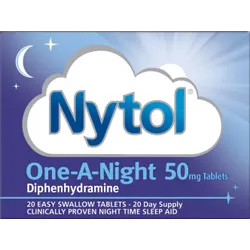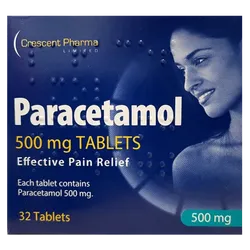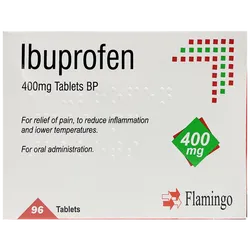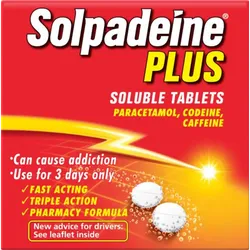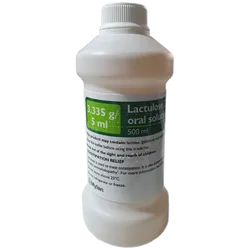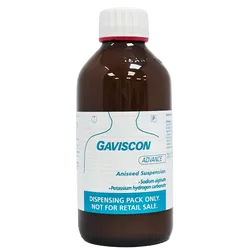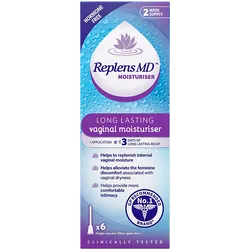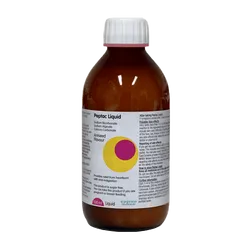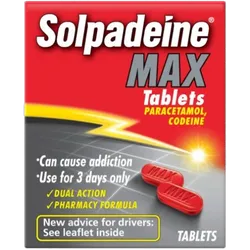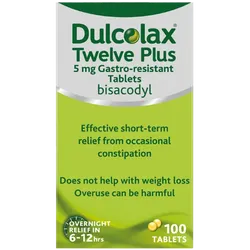There is a possible association between aspirin and Reye’s syndrome when given to children. Reye’s syndrome is a very rare disease, which affects the brain and liver and can be fatal. For this reason aspirin should not be given to children aged under 16 years, unless on the advice of a doctor.
Do not take if you:
• are allergic to aspirin, paracetamol, caffeine, or any of the other ingredients listed in this leaflet
• have or have ever had a stomach ulcer, perforation or bleeding
• suffer from haemophilia (your blood does not clot well) or from gout
• are in late stages of pregnancy
• are breast-feeding
Take special care and talk to a pharmacist or your doctor before taking this medicine if you suffer from asthma, allergic disease, dehydration, liver or kidney disease (including alcoholic liver disease) or G-6-PD deficiency (an hereditary condition leading to low red blood cell counts).
Do not use this medicine if you are taking medicines that reduce blood clotting (warfarin) or for treatment of gout (sulphinpyrazone).
Talk to your doctor or a pharmacist if you are taking any water tablets, certain cancer treatments (methotrexate), treatment for diarrhoea caused by gall bladder disease, or a lipid lowering drug (cholestyramine), some antibiotics (chloramphenicol), anti-sickness treatments (metoclopramide, domperidone), steroid hormones (corticosteroids), treatments for epilepsy (phenytoin, valproate), blood pressure lowering treatments (ACE inhibitors), antacids, treatments for leg pain when walking (cilostazol), mifepristone, treatments for gout (probenecid), treatment of obesity (sibutramine), treatment of some depressive disorders (SSRIs, venlafaxine), and some asthma treatments (zafirlukast) or other NSAIDS.
Contains ASPIRIN, PARACETAMOL AND CAFFEINE
Do not take with any other paracetamol-containing products.
Do not exceed the stated dose.
If symptoms persist for more than 3 days or if symptoms worsen, consult your doctor or pharmacist.
If you take more tablets than you should: Immediate medical advice should be sought in the event of an overdose, even if you feel well, because of the risk of delayed, serious liver damage. Bring any remaining tablets with you to show the doctor.
Possible Side Effects: Like all medicines, your medicine can cause side effects, although not everybody gets them. You can reduce the chances of experiencing side effects by using minimum dose required. Side effects may be
more serious in elderly patients.
If you experience any of these effects then STOP taking this medicine immediately and contact your doctor or pharmacist:
• Stomach ulceration or perforation: Symptoms could include severe abdominal pain, vomiting blood (or liquid with what looks like coffee grounds), blood in the faeces (stools/motions) or passing black stools.
• Severe allergic reactions: Symptoms could include difficulty breathing, skin rash or swollen facial features.
• Breathing problems: Wheezing and breathing difficulties may be triggered in patients suffering from or with a previous history of asthma
Other possible side effects
If any of the following side effects get serious, or if you notice any side effect not listed in this leaflet, please tell your doctor or pharmacist:
• Occasionally the blood does not clot well, which may result in easy bruising or bleeding.
• Rarely, a severe reduction in the number of white blood cells, which makes infections more likely.
• High caffeine intake can result in tremor (shaking) and palpitations (uncomfortable feeling in the chest caused by fluttering heartbeat). Aspirin may trigger gout in people prone to it.
• Other side effects include indigestion, heartburn, feeling or being sick, changes in skin colour, shortness of breath, and a runny nose.
Do not use this medicine after the expiry date shown on the end of the carton.
Do not store above 25ºC.
Keep out of sight and reach of children.
